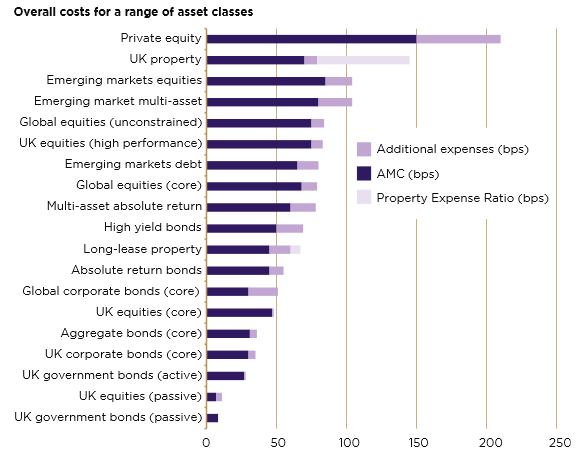Some investment managers are earning more in fees even as pressure increases on pension funds to reduce costs, research by a UK consultant has found.
LCP’s fifth annual fees survey—covering UK institutional investment—reported that some mandates had increased in cost by 60%.
“The majority of UK property, corporate bond, and core UK equity managers have increased their fee basis over the last five years.” —LCPThe diverse paths taken by different managers were illustrated by the survey: Over the five years to the end of 2014, the annual fee for a £50 million ($74 million) mandate rose by an estimated £200,000, LCP found, but some equity and diversified growth fund managers had reduced their fees by 20% in the same period.
“In contrast, the majority of UK property, corporate bond, and core UK equity managers have increased their fee basis over the last five years,” LCP said in the report.
The consultancy said increased demand for mandates in these areas may have helped push fees up, while the number of managers offering core UK equity mandates has fallen in recent years.
Elsewhere, the proportion of managers not disclosing indirect costs has fallen to just 17%, LCP found, but this positive news was offset by the 50% of managers that still did not disclose transaction costs.
“With so much scrutiny on investment management fees,” said Ken Willis, partner at LCP, “it’s disappointing that there are still some managers that are unable, or unwilling, to disclose details of the indirect charges that affect their clients.”
Mark Nicoll, investment partner at LCP, said “the mist is clearing” regarding fees as disclosure improves, but warned that “intransigence threatens the reputation of the whole industry”.
 Source: LCP
Source: LCP
The findings come as UK public pension funds have come under renewed scrutiny for paying high fees to consultants and asset managers. Research published in the Financial Times found some local government pensions were paying more than 1% of assets in fees every year. The data was compiled by John Clancy, a Birmingham councillor, and claimed to show some pension funds paid more than 1% of their assets per year in asset management and consultancy fees.
David Blake, professor of pension economics at London’s Cass Business School, said taxpayers—who eventually pick up the tab for employer contributions—“are getting a very bad deal, indirectly paying extortionate fees to the fund managers of those schemes.”
In a speech to the Local Government Pension Schemes (LGPS) conference earlier this month, Susan Martin, CEO of the London Pension Funds Authority, said combined fees paid out by public pensions were likely to be higher than previously reported.
However, Martin rejected proposals for a move to passive management across the board for the LGPS, calling instead for pensions to collaborate in a similar fashion to the recent deal between the LPFA and the Lancashire County Pension Fund.
Related Content:UK Pensions ‘Must Collaborate to Cut Deficits’ & Asset Managers Cut Back to Maintain Revenue Growth
